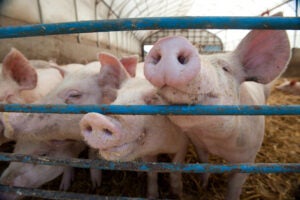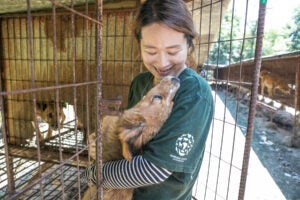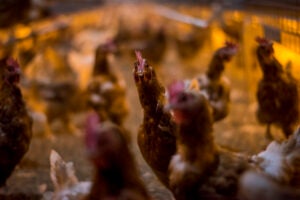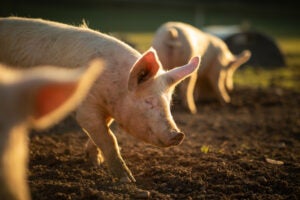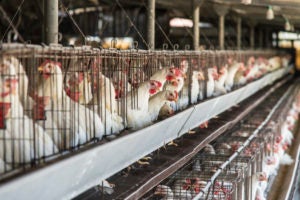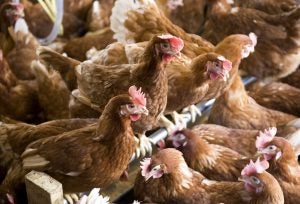
BANGKOK—Bangkok Marriott Marquis Queen’s Park in conjunction with Humane Society International pledges to shift 20% of menu options across six dining venues to plant-based proteins in the next two years. Made in response to travelers’ growing appetite for people, animal and planet-friendly food, this initiative will spare nearly 9,000 animal lives per year and reduce close to the equivalent of 150,000 kgs of CO2 emissions.
Humane Society International launched this initiative with a six-day training for the hotel’s culinary team, combining theory with practical plant-based cooking to equip chefs with the culinary techniques and knowledge to whip up new, mouthwatering recipes such as satay tempeh skewers, cinnamon French toast, lion’s mane mushroom “chicken,” and banana cream pie with gingerbread crust. Bangkok Marriott Marquis Queen’s Park will begin implementing their menu changes with an initial focus on novel plant-based breakfast offerings.
Stephen Doe, the hotel’s executive chef, said: “At Marriott, we realize Bangkok is one of the most visited cities in the world. Sustainable travel has been a keyword for travelers in recent years. People are looking for ways to reduce their impact on the environment and cut greenhouse gas emissions, whether through choosing more sustainable transportation methods or accommodations or by choosing more environmentally friendly foods. International travelers have become more conscious of their actions and know they can make a difference.
With the help from Humane Society International’s plant-based program, we are confident to serve plant-based dishes that cut down on greenhouse gas emissions and provide our customers with healthy options, plus the taste is unmatched.”
Janjaree Chianwichai, HSI food policy manager for Southeast Asia, said: “We are delighted to be collaborating with Bangkok Marriott Marquis Queen’s Park to increase their plant-based menu options, which we estimate will spare nearly 9,000 animals per year and reduce close to 150,000 kg CO2-eq emissions, the equivalent of 14 trips around the world. Through our plant-based programs, we support chefs around the world in learning how to create dishes that are better for animals, people and the environment. When you understand the techniques, cooking food from plants offers endless possibilities to create innovative, flavorful recipes. Bangkok Marriott Marquis Queen’s Park is setting a meaningful example for the hospitality industry in Asia Pacific by working to reduce its use of animal proteins by 20% over the next two years. This transformative target and milestone will help to make the hospitality industry in Asia Pacific more compassionate, sustainable and nutritious.”
ENDS
Media contact: Janjaree Chianwichai, HSI food policy manager for Southeast Asia, jchianwichai@hsi.org ; +66 982806388

